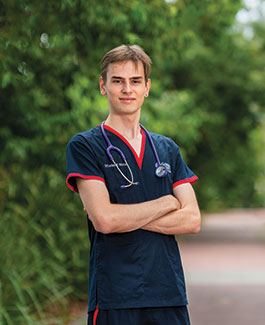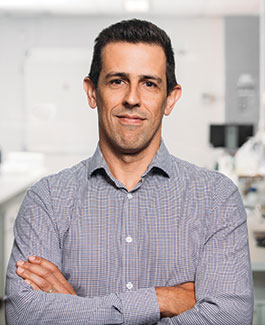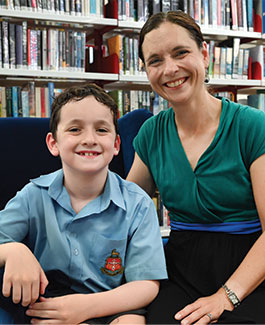Cutting-edge science to save lives
Griffith researchers are deploying cutting-edge science to save lives around the world.
Strep A affects people of different ages and socio-economic levels. It is a leading cause of infection-related death in the world. But thanks to generous support and donations from The Snow Foundation, a life-saving vaccine is one step closer.
Griffith University scientists are leading an international partnership to create a life-saving Strep A vaccine that’s effective against the bacteria’s many strains and bypasses its resistance to immunity. The vaccine is now undergoing human clinical trials and could be deployed in as few as five years.
No vaccine
is currently available and natural immunity takes years
500,000+
people killed each year from Strep A
This gives us a novel strategy to finally make a successful vaccine to protect against multiple Strep A strains
Professor Michael Good AO
Griffith University researchers identified two small molecules (epitopes) found on every Streptococcus A strain and combined them into a vaccine candidate designed to enhance the body’s immune response against even the most virulent strain.
The Snow Foundation has been instrumental in propelling Strep A and Strep Toxic Shock Syndrome (STSS) research at the Institute for Biomedicine and Glycomics with two commitments spanning six years.
Lead researcher Professor Michael Good AO from Griffith’s Institute for Biomedicine and Glycomics said previous Streptococcus A vaccine research had been slowed by the enormous diversity of the pathogen, but that his vaccine design is based on presenting to the immune system key epitopes that represent its Achilles’ heel.
“This gives us a novel strategy to finally make a successful vaccine to protect against multiple Strep A strains,” he says.
“There is currently no vaccine available and natural immunity to Strep A takes years to develop. This is because there are multiple strains and it is a highly virulent organism that subverts immunity.”
Pathology due to Strep A includes the relatively benign streptococcal tonsillitis and school sores, and the very serious conditions of rheumatic heart disease, necrotising fasciitis (flesh eating disease), toxic shock syndrome, and kidney disease.
Dr Manisha Pandey from the Institute for Biomedicine and Glycomics says repeated infections can also cause auto-immune complications such as rheumatic fever and rheumatic heart disease.
“In Australia, Aboriginal and Torres Strait Islander peoples suffer the highest rate of rheumatic heart disease in the world,” she says.
The trials are taking place at the University of Alberta, Canada, within the NACTRC clinical trials centre led by Dr Lawrence Richter and Dr Michael Hawkes.
If the trial is successful, the vaccine could be available for children and people at high risk of disease within five years and help put an end to the more than 500,000 deaths attributed to Strep A every year.
More than $100 million of philanthropy has already been secured to create a brighter future for all.
Read more impact stories

Opal HealthCare Nursing Scholarship
Scholarship recipient, Bodhi Thwaites has first-hand experience proving it isn’t just about alieving financial burdens, but providing a supportive environment and nurturing a passion, allowing him to reach his aspirations of becoming a mental health nurse.

Renewed hope for schizophrenia sufferers
This innovative research is paving the way for a better future for schizophrenia sufferers, developing potential new drugs and treatments using patient-derived stem cells, thanks to a donation from a private donor.

Advancing outcomes for autistic children
As young parents, Elga and David Dyer had no idea what to expect with a newborn. Their journey to diagnosis and their lived experience with autism led to the development of a scholarship committed to training the next generation of autism researchers.